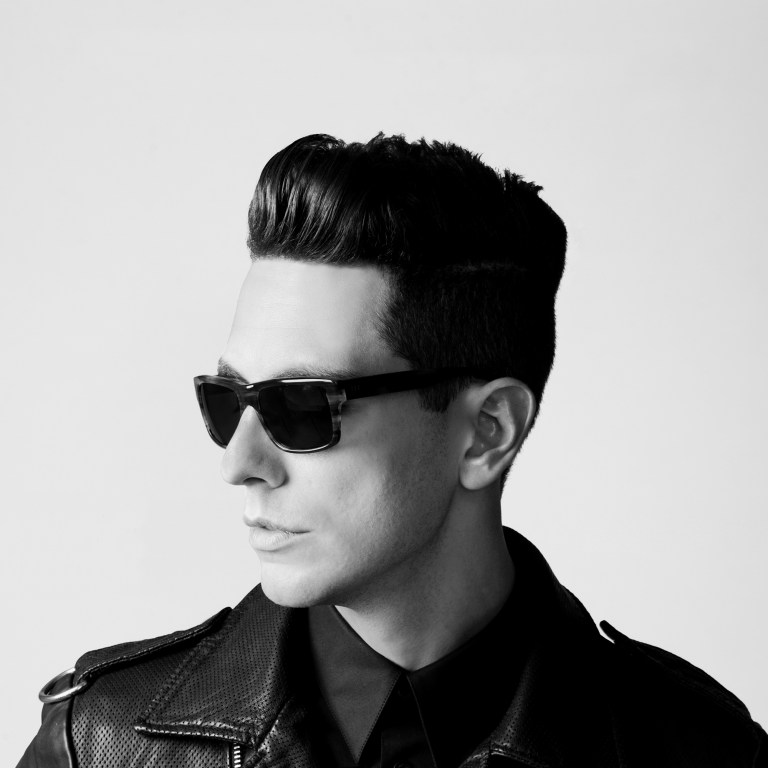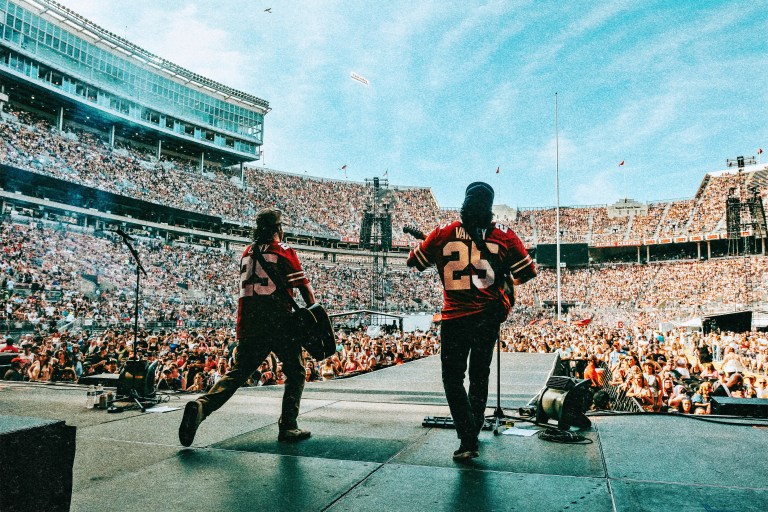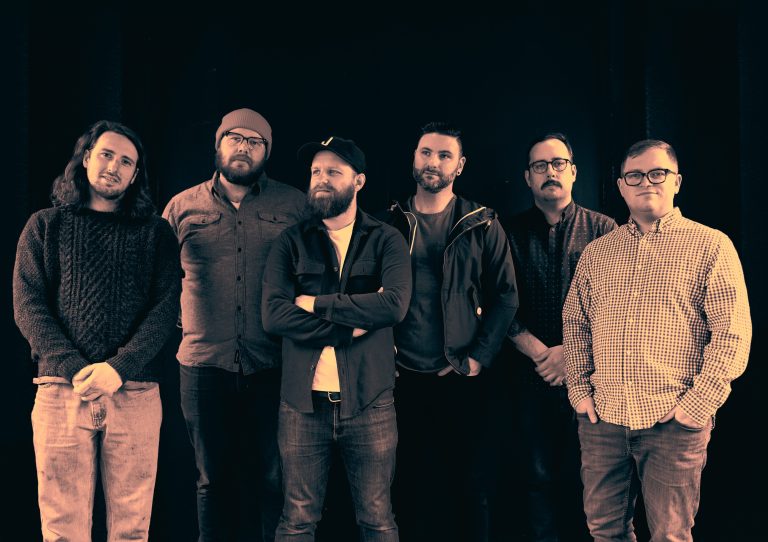Synthwave is all about curating a message through atmosphere. Which is why the genre is often used for more than just streaming purposes. French synthwave producer Perturbator is no stranger to the talent that is curating emotions. His new album Age Of Aquarius showcases this talent well. With the thematic focus on the concept of war, he went to work laying out the soundscape of a bleak and blunt event. The existential scream into the void that this album represents is his best work yet. As the last project was focused on himself, for the new body of work he wanted to move the scope of the album to larger topics. Using song titles as bread crumbs, the message sneaks up on you. Making for an evocative experience that can’t be missed out on.
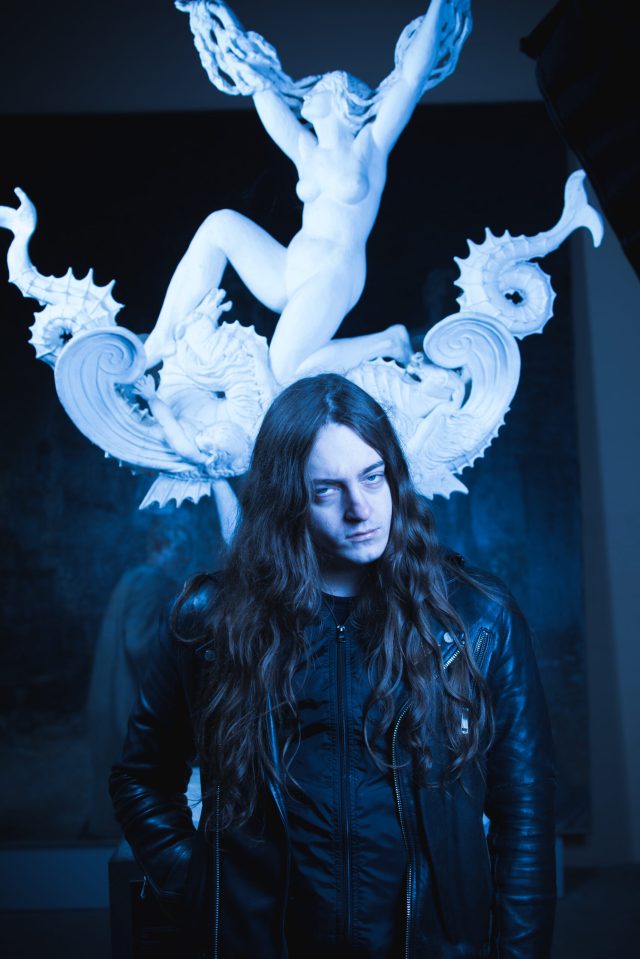
HP: Correct me if I’m wrong, but before you were Perturbator, you played in some black metal bands?
James: Yeah, I was sort of a hired gun. I would play some parts people would give me. I had one actual band that I was actually writing in. It wasn’t really black metal but more Prog.
HP: What about that experience do you think helped prepare you for where you are now music-wise?
J: I’m a guitarist first, and death metal/black metal have always been the kinds of music I listen to the most. It’s always a little bit in the DNA of what I do now, synth space music. I would say there is a moody tone to it. When I compose, I think about how I make a techno track. I go back to make what you’d call a riff or something like that. Structure-based music with courses and bridges. I make synthesizer music the same way I compose metal music.
HP: In a previous interview, you stated that you think of every album as a movie. What genre does this upcoming album, Age of Aquarius, fall into?
J: A very moody post-apocalyptic movie. There are a couple of movies that come to mind. One
being Apocalypse Now, which one of the tracks is named after. Another is the movie Hardware—very stylized, very bleak. Sort of a nihilistic future that is pretty much doomed. A lot of dystopian movies with a lot of background areas.
HP: “Stylized” is a very good way to describe this album. What about the process of thinking of an album in movie terms gives you an advantage when you’re creating it?
J: I don’t know if it’s an advantage. It does give me a good focus point. I know it helps with the themes. It’s a blend of using very harsh industrial music with a lot of cinematic elements. Without the cinematic stuff, without all the reverbs on the scenes. Without other layering of sounds, it would just sound like industrial music. I love to use movie soundtrack instruments and sound palettes. There is this atmosphere that is always there.
HP: Speaking on atmosphere, in your music the atmosphere is your way of bringing a message to a song. Compared to other genres that can just say lyrics about what the song means. How do you work through getting a message across without lyrics?
J: Well, it’s in the atmosphere, of course. But it is also in the structure of it as well. A lot of the tracks I make are not structured in a normal way. It can go in various different directions. Even within one track, which can become sort of experimental and soundtrackish or veer into very different styles. One moment you’re listening to a normal techno beat, and then afterwards there can be a very lush sound. It helps guide my music and the listener.
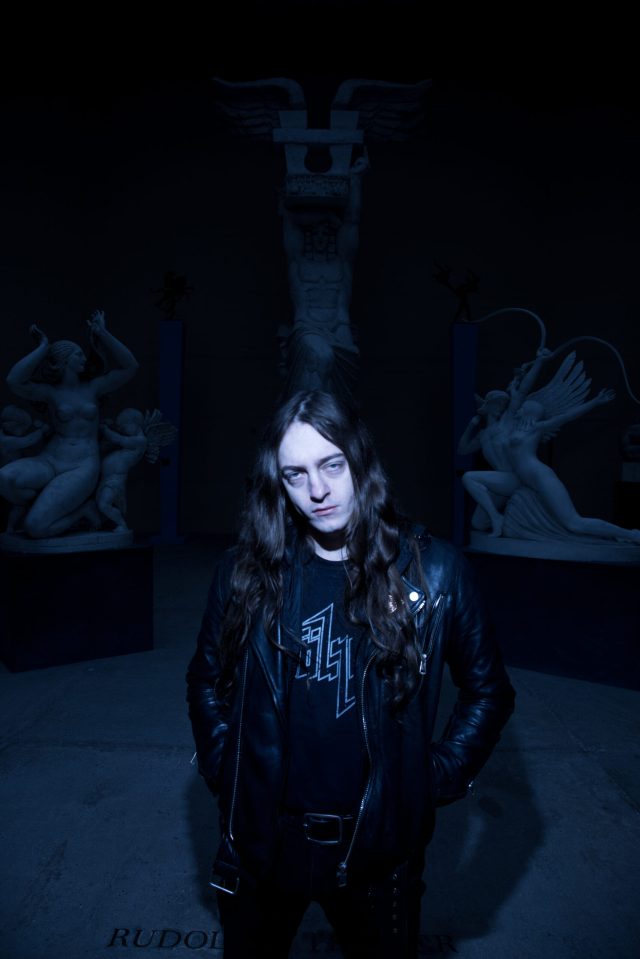
HP: This album contains a lot of duality and division. It feels like different parts of a song conversing with each other. What attracted you to song structures like this when making the album?
J: Most of them I already had in my mind while I was making them. I had the structure, and I had the mood, so I was just trying to execute them. Some of them I went with the flow. Nothing was rough in it. If I did not know how to end the track, I would just make it up as it goes. “Oh, let’s try this. Let’s try to bring the guitar here and see how it goes.” We will sort of go along with it. Sometimes it works and sometimes it doesn’t. When it didn’t, you just started over or maybe started a new track, but most of the time it worked. I was composing the album pretty much at the same time. It was very focused like that.
HP: Without the use of lyrics or very few. How important is the song title in giving the listener a hint into what the meaning of the song may be?
J: It’s probably the most important because, as you said, it’s pretty difficult to convey an idea with just an instrumental track. So the title track is the easiest way to talk about and convey that this track is about that.
HP: A title for a song on this album is “Mors Ultima Ratio”. Which translates to “death is the final accounting”. What was the inspiration or event that caused you to find this title fitting?
J: Because it is an album about conflict, and it’s also about individualism. I found the phrase would sum up what the album was about. Those two themes come together in a sort of climatic manner because it is the penultimate track on the album. So it just fit what I wanted to convey.
HP: In press around the album, you talked about wanting to convey the concept of war compared to a specific event. How did that change your process, and what in the album conveys that?
J: It’s mostly in the heaviness and chaoticness of some of the tracks. Some of the tracks are pretty hectic. I wanted that to be sort of the whole idea for conflict. I remember thinking that my previous album was pretty intimate. It was more about my own vision of myself. So I wanted this one to be about people and the way I see the world instead of myself. It’s not just current events. People have been in conflict, or there has always been conflict. Humanity is like that, and the concept for me pretty much writes itself.
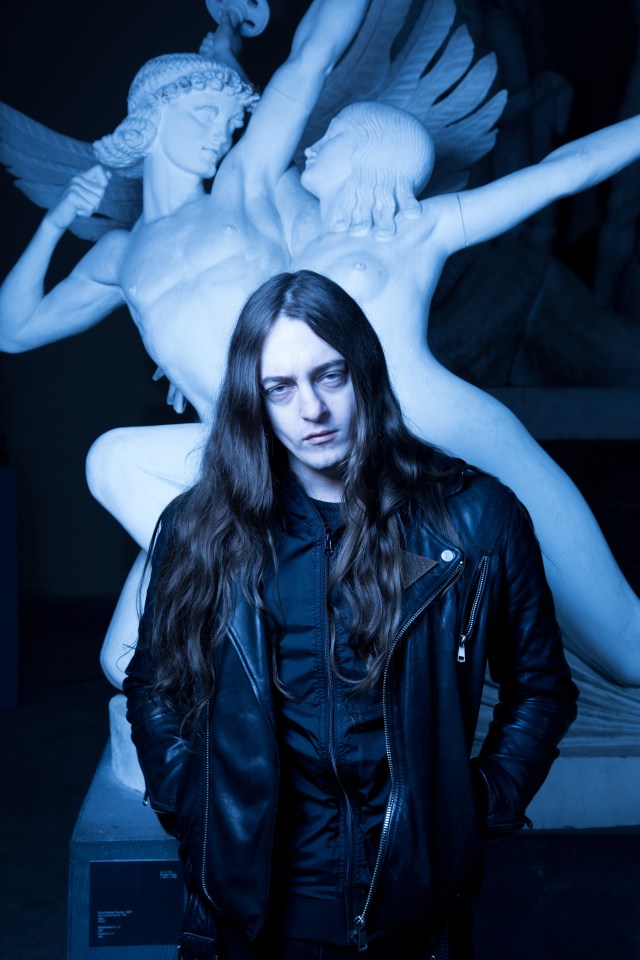
HP: In the music video for “Art Of War”, there is military equipment and soldiers made of porcelain with Delftware patterns on them. Is this commentary on how we romanticize war and what comes with it?
J: A little bit of that. It’s also about the futility of said conflicts. The porcelain war machines and weapons all get painted on. It’s all very useless. It’s all about to explode.
HP: What’s your favorite piece of media or content your music has been used in?
J: The Guest by Adam Wingard. I really like that movie, and my music is in one of the scenes. It plays a bit of an important role inside the movie. I don’t know, for some reason I’m pretty proud of that.
HP: What’s one game or movie you wish you could retroactively score?
J: To be honest with you, I wish I would have done the soundtrack for one of the Terrifier movies. Which I was pretty close to doing. The first one isn’t really called All Hallows’ Eve, and it was scored by a good friend of mine; his stage name is Radical. I was pretty close to being able to do that one. I wish I would have done that. On a grander scale, I would have loved to do some but not all of the music for the latest Blade Runner.
HP: One piece of media you run to when you are feeling nostalgic?
J: There are a lot. Especially the older I get, the more I start to listen to stuff I already know that I like. I would say the movie Halloween is somewhat of a comfort movie for me. I will always go back to it. For video games there are a bunch. The Dig and Vampire Masquerade: Bloodlines. Check out Perturbator’s new album Age Of Aquarius out now.



